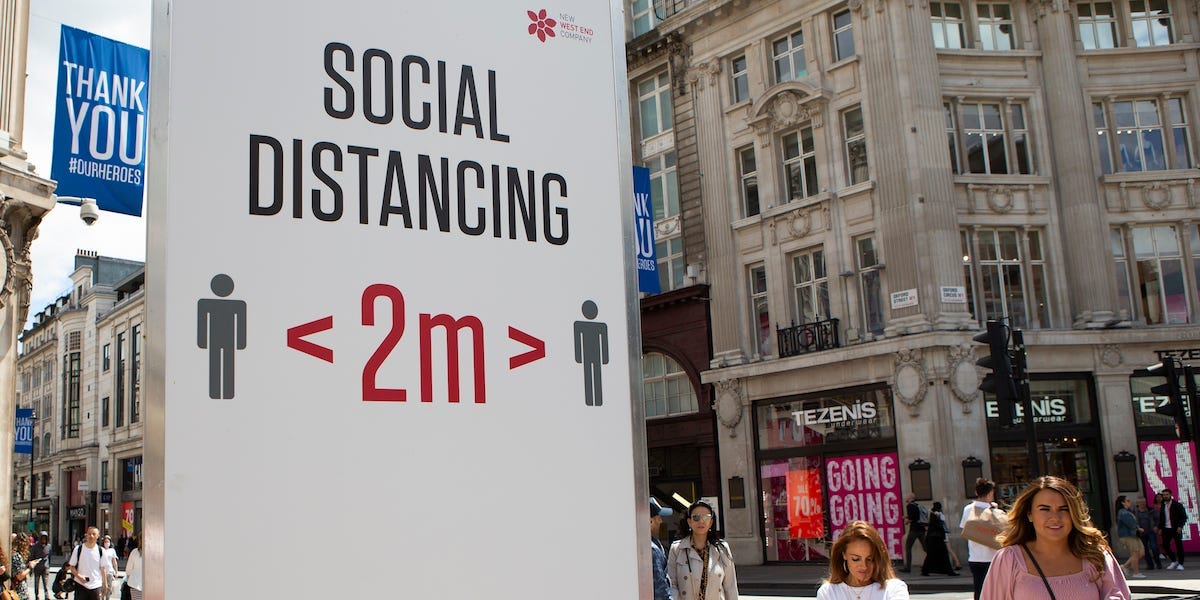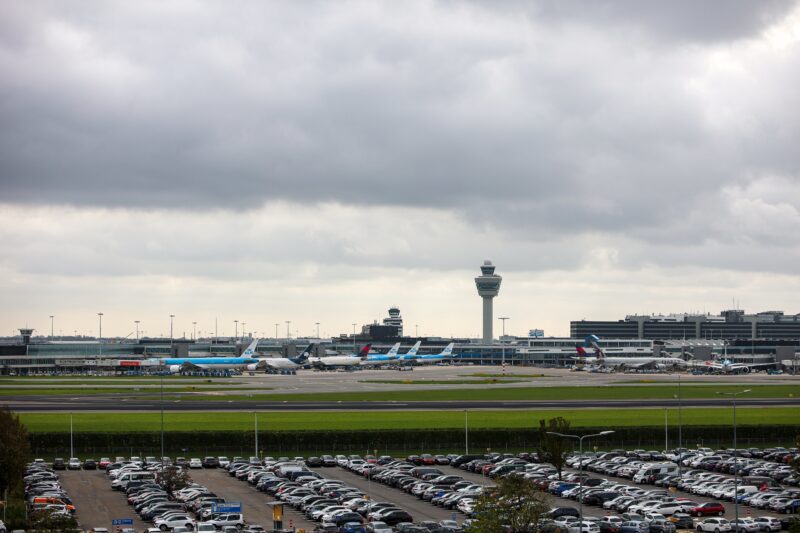
- A sharp increase in the number of coronavirus cases in the UK has prompted concern that Boris Johnson’s government is losing its grip on the pandemic.
- The new figures raise the prospect that the UK could face a similar situation to France and Spain, where young people being infected with the virus caused a rise in hospital admissions among older and more vulnerable people a few weeks later.
- Almost 3000 new cases were recorded on Sunday, up more than 1,000 from Saturday and the highest level since late May
- ‘Sadly it is beginning to look like we are moving into a period of exponential growth in the UK epidemic, and if so we can expect further increases over coming weeks,’ Professor Paul Hunter, an outbreak response expert at the University of East Anglia.
- Boris Johnson’s spokesman says the government is “concerned” about the spike in cases.
- Visit Business Insider’s homepage for more stories.
A sharp increase in the number of coronavirus cases in the UK has prompted concern that Boris Johnson’s government is losing its grip on the pandemic.
Almost 3000 new cases were recorded on Sunday, up more than 1,000 from Saturday and the highest level since late May. While the number of people dying from coronavirus remains relatively low, with 2 new deaths recorded in 24 hours on Sunday, ministers have said the rise in cases is worrying.
The new figures raise the prospect that the UK could face a similar situation to France and Spain, where young people being infected with the virus caused a rise in hospital admissions among older and more vulnerable people a few weeks later.
Matt Hancock, the health secretary, insisted on LBC Radio on Monday that cases in the UK were not out of control, and said that most of the new cases being recorded among people aged between 17 and 21 who are from “affluent areas,” although he conceded that the new figures were “concerning” because “nobody wants a second wave.”
Boris Johnson's spokesman called on people to maintain social distancing measures, which have been under strain following the lifting of lockdown measures earlier in the summer.
Scientists voiced concern that cases were starting to grow quickly, especially as millions of students prepare to return to university and children return to schools.
Professor Paul Hunter, an outbreak response expert at the University of East Anglia, said that some of the new cases appear to have been the result of delayed test results, which came after health officials struggled to keep up with demand.
But he said that, even when delays were taken into account, the increase in cases appeared to signal a return to "exponential growth."
"Sadly it is beginning to look like we are moving into a period of exponential growth in the UK epidemic, and if so we can expect further increases over coming weeks," he said, in comments reported by the BBC.
Yvonne Doyle, medical director of Public Health England, confirmed that while most cases were recorded in the north of England, there had been a broad increase across the UK.
"They've lost control of the virus," Professor Gabriel Scally, a former regional NHS public health director, told the Guardian. "It's no longer small outbreaks they can stamp on. It's become endemic in our poorest communities and this is the result. It's extraordinarily worrying when schools are opening and universities are going to be going back."
Countries across Europe are contending with what some experts and politicians say is a second wave of coronavirus infections as they seek to reopen their economies and encourage people to resume elements of normal life.
Spain recorded 4,503 new cases on Friday, the highest tally in Western Europe according to Reuters, although the infection rate appears to have slowed from a peak of nearly 10,000 earlier last week. The Spanish health ministry does not publish coronavirus figures on weekends.
The new wave also appears so far to have been significantly less deadly than the first to date, with the health ministry reporting 19 new deaths on Friday, down from a daily peak of several hundred.
France recorded 7,071 cases on Sunday, according to Reuters, down from Friday's peak of 8,975 but significantly higher than most European countries. The number of people being hospitalised in the last seven days climbed to 1,704, of which 288 were in intensive care, according to Reuters.










